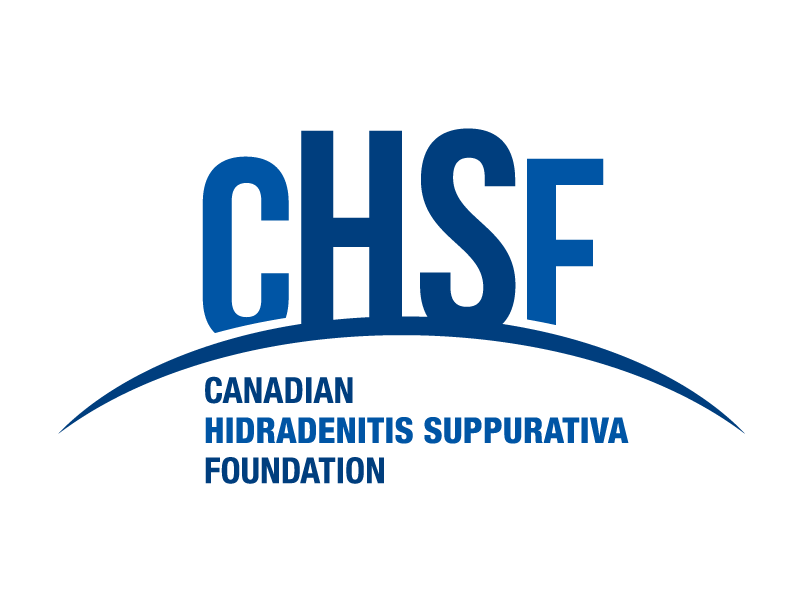When it comes to living with Hidradenitis Suppurativa, we understand that managing symptoms is an ongoing, multifaceted challenge. While there is no one-size-fits-all solution for individuals affected by this chronic inflammatory skin condition, understanding the connections between lifestyle factors and HS can empower patients to make informed choices that positively impact their well-being. One area that has been increasingly researched and discussed is the influence of nutrition in managing Hidradenitis Suppurativa.
Although more research is needed to establish definitive causal links, anecdotal evidence and preliminary studies suggest that specific dietary changes may alleviate HS symptoms for some individuals. As experts in dermatology and champions of HS patients, we recognize our responsibility to explore and share insights on the role of diet and nutrition in managing Hidradenitis Suppurativa , providing guidance and support for patients seeking to improve their symptoms and overall quality of life.
This article will examine the potential connections between nutrition, and Hidradenitis Suppurativa. We will discuss foods that may exacerbate or alleviate symptoms, shed light on the importance of nutritional counseling, and provide practical tips for incorporating healthy dietary habits. Our goal is to empower and encourage HS patients and their support networks to take control of their health journey through informed decisions and holistic approaches to symptom management.
By understanding the role of diet and nutrition in the context of HS and making purposeful changes to daily food choices, patients can take an active role in managing their condition and fostering a healthier, happier life.
Understanding the Connections Between Diet and HS

Foods that help in Managing hidradenitis suppurativa symptoms
Omega-3 Fatty Acids
Omega-3 fatty acids are essential for an anti-inflammatory diet and offer benefits for autoimmune diseases. Good sources include various fish such as salmon, herring, mackerel, sardines, and vegetarian options like flaxseed, chia seeds, walnuts, and canola oil.
Cooking salmon is straightforward and versatile, perfect for roasting with lemon, salt, and pepper or in a creative salmon and asparagus sheet pan recipe. For an affordable omega-3 option, canned sardines are great in pasta, salads, or fish tacos.
Walnuts are an excellent snack and enhance salads, oatmeal, pasta, and baked items. Adding a tablespoon of flaxseed or chia seeds to smoothies, oatmeal, or yogurt boosts your omega-3 intake, and chia seeds are also ideal for making pudding or jam.
Fruit and Vegetables
When it comes to nutrition, fruits and vegetables are hard to beat. They provide essential nutrients such as fiber, potassium, vitamin C, and folate, which are crucial for maintaining good health. Moreover, they are rich in thousands of phytochemicals that offer protection against various diseases.
To ensure a diverse intake of nutrients, it’s important to consume a wide variety of colorful fruits and vegetables daily. Different colors indicate unique nutrient profiles and phytochemicals, enhancing their health benefits. Aim to include fruits and vegetables of various colors in your diet, such as red, blue, and purple (e.g., tomatoes, watermelon, berries, and red grapes), orange and yellow (e.g., carrots, sweet potatoes, bell peppers, mangoes, and peaches), green (e.g., asparagus, broccoli, green beans, and spinach), and white (e.g., cauliflower, mushrooms, onions, and bananas).
Whole Grains
Remember to prioritize whole grains such as oats, brown rice, quinoa, and barley to benefit from their fiber and nutrient content. Opt for whole grain products like bread and breakfast cereals labeled as 100% whole grain or check the ingredient list for whole grains listed as the first ingredient.
Choosing whole grains over refined grains is associated with numerous health advantages, including lower risks of heart disease, stroke, and Type 2 diabetes. Additionally, consuming refined grains like white bread and white rice is linked to the potential aggravation of acne due to their rapid breakdown during digestion, leading to increased blood glucose levels. Therefore, incorporating more whole grains into your diet can improve overall health and well-being.
Lean Proteins
Incorporating lean proteins like chicken and turkey into your diet offers a healthier alternative to fattier meats, providing less saturated fat. This is beneficial for maintaining a healthier weight and managing HS symptoms. Chicken and turkey are versatile and can be prepared in numerous ways, making them a staple in a balanced diet.
For those on a plant-based diet, beans and lentils are excellent alternatives. Rich in protein and fiber, they support muscle health and play a crucial role in reducing inflammation, essential for preventing HS and promoting overall well-being. These lean protein sources are crucial for a nutritious diet, aiding disease prevention and sustaining health.
Turmeric
Turmeric and its active compound, curcumin, are known for their anti-inflammatory properties, but more research is needed to establish a direct link between turmeric and HS. However, some studies suggest that curcumin may benefit skin conditions in general, which could be promising for individuals with HS.
There are many ways to incorporate turmeric into your diet. You can use it in main dishes like tandoori chicken with brown rice or cauliflower turmeric stew, as well as in insides and snacks such as roasted turmeric chickpeas. Another popular option is golden milk, a warm beverage made with turmeric. While golden milk recipes often include sweeteners, you can omit them to reduce your intake of sweetened drinks and foods.
Foods to Avoid

Sugar
Higher insulin levels have been linked to exacerbations of HS, and sugar intake can increase those insulin levels. Thus, minimizing sugar consumption may benefit individuals with HS. Cutting down on sugar can pose challenges, however. Recommendations to aid this reduction include steering clear of sugary drinks such as soda, vigilantly reading labels for added sugars, and opting to use fruit as a natural sweetener for cereals instead of granulated sugar.
Dairy Products
Eliminating dairy from your diet may help improve symptoms of HS for some people, according to a review of observational studies. However, more conclusive research is necessary to understand the impact fully. If you decide to go dairy-free, ensure you’re still getting enough calcium and vitamin D. You can achieve this by incorporating foods such as leafy green vegetables and fortified beverages like soy milk into your diet.
Dairy alternatives are becoming more widely available in mainstream supermarkets. When selecting dairy-free products, it is important to carefully check the nutritional label. Look for essential nutrients like vitamin D and calcium while being mindful of ingredients you may want to limit, such as sugar or sodium.
Brewer’s Yeast
Brewer’s yeast, known scientifically as Saccharomyces cerevisiae, is widely used to produce bakery products and fermented items, including cheese, soy sauce, and various alcoholic beverages. Certain individuals develop antibodies against this yeast, a situation that is associated with several autoimmune conditions. A study revealed that when individuals suffering from HS excluded brewer’s yeast from their diets, about 70% experienced a notable improvement in their HS symptoms, possibly because of decreased inflammation.
Refined Carbs
Highly refined simple carbohydrates can break down into sugar, increasing blood sugar levels and heightening insulin spikes. This process can contribute to inflammation and blockages in the follicular ducts, possibly resulting in HS flares.
To promote better health, we recommend limiting added sugar intake to less than 10 percent of daily calories and consuming less than 3 ounces of refined grains daily. These dietary changes can offer numerous health benefits beyond managing HS.
The Importance of Nutritional Counseling and Personalization

Nutritional Counselling
Given the potential connections between diet and HS, nutritional counseling from a registered dietitian or nutritionist can be a valuable resource for HS patients. This guidance can help identify specific trigger foods, develop personalized meal plans, and ensure that an individual’s diet is nutritionally balanced and tailored to their unique needs.
Personalization
It is essential to remember that every individual with HS is different, and what works for one person may not work for another. Thus, personalization is vital in adopting dietary changes as part of an HS management plan. Monitoring and adjustments may be necessary to optimize results and maximize symptom relief.
Practical Tips for Incorporating Healthy Dietary Habits

Start with an Elimination Diet
An elimination diet involves removing potential trigger foods from one’s daily intake for some time, typically 3-4 weeks. After this period, the foods are gradually reintroduced, and the individual observes if any symptoms reemerge. This process can help identify specific foods contributing to HS flare-ups.
Embrace a Whole Foods Approach
Shifting towards a whole foods-based diet, rich in fruits, vegetables, whole grains, lean proteins, and healthy fats, can contribute to overall well-being and potentially support HS symptom management. Minimizing processed and refined foods is recommended, as they can contribute to inflammation and other health issues.
Stay Hydrated
Adequate hydration is essential for overall health, including skin health. Aim for at least eight 8-ounce glasses of water daily and consider incorporating water-rich fruits and vegetables to help you stay hydrated throughout the day.
Maintain a Healthy Body Weight
Excess body weight has been linked to increased HS severity due to added pressure on the skin. Focusing on a nutritious diet and regular physical activity can help achieve and maintain a healthy body weight, thus promoting better symptom management.
Myths About Hidradenitis Suppurativa Diet
Diet can cure Hidradenitis Suppurativa
Currently, there is no cure for HS, and modifying one’s diet, while helpful, cannot alone eliminate the condition. Diet can contribute to symptom management and may help lessen the occurrence of flare-ups, but it should be integrated into a broader treatment strategy that encompasses medical treatments and lifestyle adjustments.
There is a specific HS diet that works for everyone.
Hidradenitis suppurativa impacts each person uniquely, and it’s impossible to find a universal diet that suits all. Everyone may experience different triggers and sensitivities, meaning a dietary approach that benefits one individual might not be effective for another. Those living with HS should pay close attention to how their body reacts to certain foods, maintain a food diary, and collaborate with healthcare providers or registered dietitians with expertise in HS to tailor a diet plan that best suits their personal needs.
Everyone with HS should avoid dairy products and nightshade vegetables.
People with HS may encounter flare-ups after consuming dairy products or nightshade vegetables. However, these triggers may not impact everyone with HS. It’s important to identify personal trigger foods through self-monitoring and collaborating with healthcare professionals or registered dietitians to pinpoint and eliminate specific trigger foods if needed.
Following a specific HS diet will guarantee improvement in symptoms.
Although altering one’s diet can lessen symptoms and decrease the frequency of exacerbations in individuals with HS, it’s not a definitive solution for all. The complexity of HS stems from a mix of elements such as genetics, hormonal fluctuations, and personal lifestyle. The impact of dietary adjustments varies from person to person, requiring a period of trial and error to identify an effective strategy for symptom management.
All processed foods should be eliminated from the HS Diet.
Cutting down on processed foods is advantageous, yet cutting them out is not compulsory. Although certain processed foods with refined carbohydrates, unhealthy fats, and additives can lead to inflammation, not every processed item is harmful. Instead, the emphasis should be on the general pattern of your diet, opting for whole, unprocessed foods as the staple but still maintaining flexibility and balance in your diet.
The Power of Diet and Nutrition in Managing HS Symptoms
Although there is no one-size-fits-all solution for treating Hidradenitis Suppurativa, recognizing the role of diet and nutrition in symptom management can empower individuals to make informed choices that promote overall well-being. By understanding the connections between HS and dietary intake, seeking personalized nutritional guidance, and incorporating healthy dietary habits, patients can actively manage their condition, fostering a happier and healthier life with our help at the Canadian Hidradenitis Suppurativa Foundation. Embracing a holistic approach to HS management can give patients hope and encouragement, helping them reclaim control over their health and well-being.
